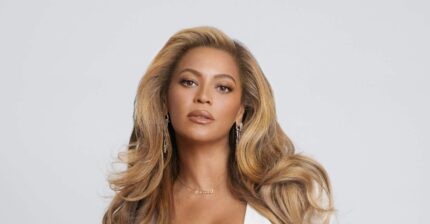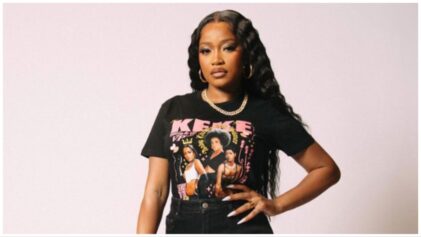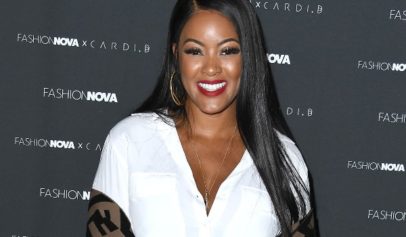
Vicky Logan, YouTube
Almost any Black woman who has wandered into a drug store has faced the same dilemma: Which shade of [insert product here] fits my complexion? Usually, this refers to the foundation laid as the base on a woman’s face, but it can also refer to lipsticks and blush.
The issue doesn’t just deal with makeup but, as many exasperated natural-haired women know, it refers to products for the mane as well. Though Black women have Shea Moisture and Carol’s Daughter, the masses of hair companies have only recently begun to pay attention to the unique beauty needs of Black women, according to Refinery29.
Thankfully, some women have newly taken control of how their faces are made up in the morning. Ofunne Amaka took to Instagram one day to demonstrate to other Black women how makeup swatches would show up on darker hues. Little did the fashion and beauty blogger expect, she was met with thousands of followers who appreciated her efforts. Now, Amaka is launching an app called Cocoa Swatches, after the same-named Instagram account. Because of thoughtful individuals like her, a change is being lead in predominately white beauty brands to demand more products for coarsely textured hair and melanin proficient women, according to Mic.
Lately, it seems that cosmetic beauty companies are taking notice and starting to implement changes, no matter how many decades late the change has come. According to Refinery29, L’Oréal launched a “Women of Color Lab” project in 2013 aimed at producing foundations which feature the wide ranges of Black skintones. The company acquired Carol’s Daughter in the next year, and in its press release announcing the move, the company touted Carol’s Daughter as a brand that “caters to a diverse, rapidly growing market,” as if that market – filled with Black consumers eager to consume products that work well with their tresses – hasn’t been sitting on the sidelines for all these years.
It’s been well-documented that Black women make up a bulk of the consumers in the beauty industry. According to The Huffington Post, the Black hair industry accounts for profits of $500 billion. That’s including the shift away from relaxers to natural hair. With all that money being spent, there’s plenty of financial proof that there is high demand for quality products catering to Black needs.
Where makeup is concerned, it’s clear that Black celebrities are being featured more prominently than ever as ambassadors across marketing campaigns for companies ranging from drugstore brands like Neutrogena (Kerry Washington) and high-end ones like Lancôme’ (Lupita Nyong’o). But it’s still taken so much time for these brands to feature makeup that includes a variety of skin tones. Washington wasn’t even able to find a foundation that matched her skin tone, according to Refinery 29.
One thing that holds beauty companies from including women of color is the idea that there needs to be specialization. According to Refinery29, Black products are always featured separately in the “ethnic” beauty section. Other times, the products are no longer carried by retailers due to issues of demand. Retailers and beauty companies alike should stop seeing Black women as the other and start seeing them as being in tune with other consumers of beauty products.
“They’re not categories,” said Desiree Reid, vice president of Iman Cosmetics. “They’re customers that are looking for the same thing every woman’s looking for when she walks down that beauty aisle.”
Once companies get on board with this line of thinking, Black women will see more honest improvements.


